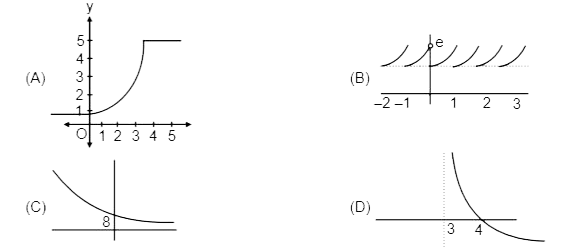d2xdy2=
(d2ydx2)−1
−(d2ydx2)−1(dydx)−3
(d2ydx2)(dydx)2
−(d2ydx2)(dydx)3
The correct Answer is:D
Step by step video, text & image solution for (d ^(2) x)/(dy ^(2)) = by Maths experts to help you in doubts & scoring excellent marks in Class 12 exams.
Updated on:21/07/2023Topper's Solved these Questions
Similar Questions
फलन f1(x)=⎧⎪⎨⎪⎩1यदिx≤0x2+1यदि0<x<25यदिx≥2,f2(x)=log1/2(x−3),f3(x)=23−x तथा f4(x)=e{x} जहाँ {.} भिन्नात्मक भागफलन को प्रदर्शित करता है, के आरेख निम्न (क्रम में नहीं) है-

फलन f1(x),f2(x),f3(x) एवं f4(x) के आरेखों का सही क्रम होगा-
View Solutionf(x)=cos(sin(ln(x2+ex2+1)))+sin(cos(ln(x2+ex2+1)))
View Solution(d^(2)x)/(dy^(2)) is equal to :
View Solution(d^(2)x)/(dy^(2)) Is equal :
View SolutionIf d2xdy2(dydx)3+d2ydx2=k , then k is equal to
View Solutiondyd=xx2+1
View Solutiond2xdy2 का मान होगा-
View SolutionIf dxdy=u and d2xdy2=v, then the value of d2ydx2 is -
View SolutionIf x2+y2=1, then d2xdy2
View SolutionIf y=x2+2x+3, then d2xdy2
View SolutionIf : dxdy=u and d2xdy2=v, then: d2ydx2=
View SolutionIf y=x^(2)+2x+3," then "(d^(2)x)/(dy^(2))
View Solutionयदि d2xdy2(dydx)3+d2ydx2=k, तब k बराबर है
View SolutionShow that d2xdy2=−(d2ydx2)(dydx)−3
View SolutionIf d2xdy2(dydx)3+d2ydx2=k , then k is equal to
View SolutionIf x2+y2= a then d2xdy2 = ___________
View Solution
